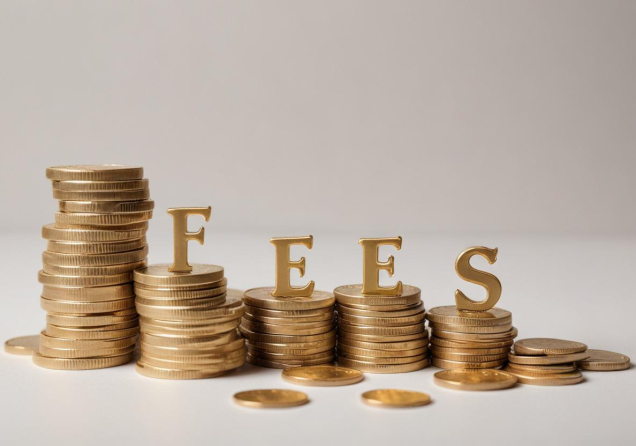Interview with professional forex trader Chew Wei Xiang
We sat down with Chew Wei Xiang, a seasoned forex trader from Singapore managing over $70 million in assets, to discuss his journey, trading strategies, and market insights. We focused on asking the hard-hitting questions that will give our readers practical takeaways to elevate their own trading.
Lessons, Challenges, and Success: A Talk with Chew Wei Xiang
Redactor (Michael): Thank you for taking the time out of your busy schedule to uncover the story behind one of Singapore’s most successful traders. To start, could you briefly introduce yourself?
Wei Xiang: Thanks, Michael, it’s an honour to be here. I’m Wei Xiang, a 27-year-old professional self-taught trader from Singapore. I started trading 7 years ago at the age of 20, and currently have over $70 million in Assets Under Management (AUM).
Now, Let’s Ask About His Trading Game Plan
Redactor (Michael): What type of trader are you (scalper, day trader, swing trader, etc.)?
Wei Xiang: I wouldn’t give myself a specific classification as it really depends on the performance and quality of the trade set-up. Sometimes, I hold the trade for a few days, weeks or even months, so I’m probably a mix between a swing trader and position trader. Trading on the 4hr / Daily time frame also greatly reduces the probability of over trading which is a very common problem for most traders.
Redactor (Michael): What markets do you focus on most often?
Wei Xiang: I started with mastering forex, but over the years I’ve expanded my scope to capitalise on high volatility opportunities. These days, I’m trading crypto, forex, indices, precious metals, and energy. But oftentimes, I find myself going back to forex as it focuses on macroeconomics, and there’s a fairly wide range of currencies to pick from, although I only trade the major and minor pairs. After all, forex is the largest market in the entire financial market.
Redactor (Michael): How did you develop your trading strategy over time?
Wei Xiang: It all started with the basics of the basics, support and resistance along with price action, but even with something as simple as that, there are still many different views and variations that a trader can perceive. With the help of momentum indicators, over time, I’ve created a simple strategy that eliminates emotional bias and decision fatigue. No fancy so-called “institutional” trading strategy. In fact, I’ve visited numerous institutional trading floors and not a single trader is trading ICT or SMC. We can all agree that it’s a gimmick used by course sellers to sell hopes and dreams to the retail traders that they will become institutional traders if they trade the “institutional’ way.

Chew Wei Xiang at the Traders Fair Awards. Image shared with the explicit consent of Chew Wei Xiang.
Redactor (Michael): Have you ever had to completely change your trading strategy? What led to that decision?
Wei Xiang: In the beginning, yes, I did change it a couple of times, but once I found out what worked for me, I just stuck to it. I always believe that everyone’s trading strategy has to be customised to suit their personality. Traders can't just copy and paste strategies from the internet or any gurus and expect to be profitable, that is probably why 95% of the traders don’t make money.
Now, Let’s Ask What a High-Stakes Trader’s Life Really Looks Like
Redactor (Michael): Describe a key moment in your trading career.
Wei Xiang: The year was 2021, and I was 23 years old I was offered to help manage funds for an old-time serial entrepreneur whom I’ve gotten close with during my early days in trading. He saw my hard work, struggle and finally saw that I was a profitable trader. Together with 2 other of his friends, I’ve raised 700K as my initial funding.
Redactor (Michael): What does an average trading day look like for you?
Wei Xiang: My usual day starts around 10 am, when I wash up and walk my dog, have a quick look at the charts for no more than 15 mins, have lunch, and I’ll either hit the gym or go for golf. I’ll come back around 5 pm, when I’ll have a quick shower and chill, and have another quick look at the markets before preparing to host weekly educational trading webinar at 8 pm, which would end at 9 pm. Have dinner, walk my dog again, and the rest is my rest and relax time.
Contrary to popular belief, trading does not take much time once you are a seasoned and profitable trader. I always believe in trading to have the freedom to live my life and not live my life to trade. I probably spend no more than 1 hour a day looking at / checking the charts. Being a swing/position trader gives me the time, flexibility and freedom to have more free time to work on other stuff or have fun.
Now, Let’s Ask What the Realities of Trading Are
Redactor (Michael): With the widespread use of AI, do you utilize any AI tools to enhance or speed up your market analysis?
Wei Xiang: While AI hype is here, I do think that AI is far from being capable of doing technical analysis. However I do use AI to research fundamentals, financial news, or events. Traders should know how to differentiate Artificial Intelligence vs bots using a specific set of parameters with no machine learning capability. There are many claims out there selling fake AI indicators or AI automated trading bots where there is no Artificial Intelligence involved. As of now, trading bots are just following a set of trading parameters to automate trading, which, in my 7 years of trading, I have yet to see one that is consistently profitable in trading with at least a 12-month track record.
Redactor (Michael): Is there a specific time of day (e.g., during a certain trading session overlap) when you primarily trade, or does it not influence your activity?
Wei Xiang: I streamline everything in my trading style and strategy to get an edge over the markets. I automate as much of my trading process as possible and mainly use limit orders with preset stop loss and take profit levels. This eliminates any emotions when entering a trade or closing a trade, whether in profit or loss. I would say that unless you are a scalper or day trader, trading sessions will have a minimal impact on you, as they have almost no effect on me.
Redactor (Michael): How do you approach the use of leverage in your trades, and what do you consider to be the right amount of leverage for consistent profitability?
Wei Xiang: I would think of leverage as a tool and a safety net. The most important factor you have to use is risk management. You can risk 1% per trade on a 1:50 leverage, and you can also risk the same 1% with a 1:500 leverage. However, with a lower leverage, it prevents you from opening position sizes that are too big due to the lack of margin, and that is the safety net in the event you try to enter a bigger contract size or higher risk percentage on a trade, be it intentional or accidental. Currently, I’m using 1:30 and it has been sufficient for me.
Redactor (Michael): How important is real-time news for your trading, and how do you incorporate news analysis into your strategy?
Wei Xiang: The initial price spikes and dips are caused by the market co-efficiency. Although I don’t use real-time news for trading, it is important as the real impact of news takes some time could be a few days or weeks, to impact the economy alongside the citizens, businesses or any country's trading partner. Understanding the news and forming a directional bias is very useful for the mid to long-term forecast of the price of any asset.
Now, Asking for His Final Thoughts to Share
Redactor (Michael): As we wrap up the interview, what is the one piece of advice you would give to traders who are just starting out or looking to elevate their trading career?
Wei Xiang: I have 3 actually, if you don’t mind (laughs)
- 1. Stay away from trading or investing communities, oftentimes it’s the blind leading the blind or what they call monkey see monkey do, and if you join them, you’ll be a monkey dancing with them too.
- 2. Choose your guru wisely, ask yourself if they have years after years of a consistent track record, or if they are just showing you their compiled screenshots of their lucky wins. Are they a legit trader, or are they just an influencer or a salesman?
- 3. Never trade when you have extreme emotions, happy, sad or angry. Your trading account will thank you in the future. Whenever you experience extreme emotions, do what you have to do not trade. If you have to, temporarily delete your trading app and reinstall it when you feel better.
Top-Tier Trusted Brokers
The table below contains links to 3rd party websites of our top partners from whom we receive compensation at no additional cost to you.


























